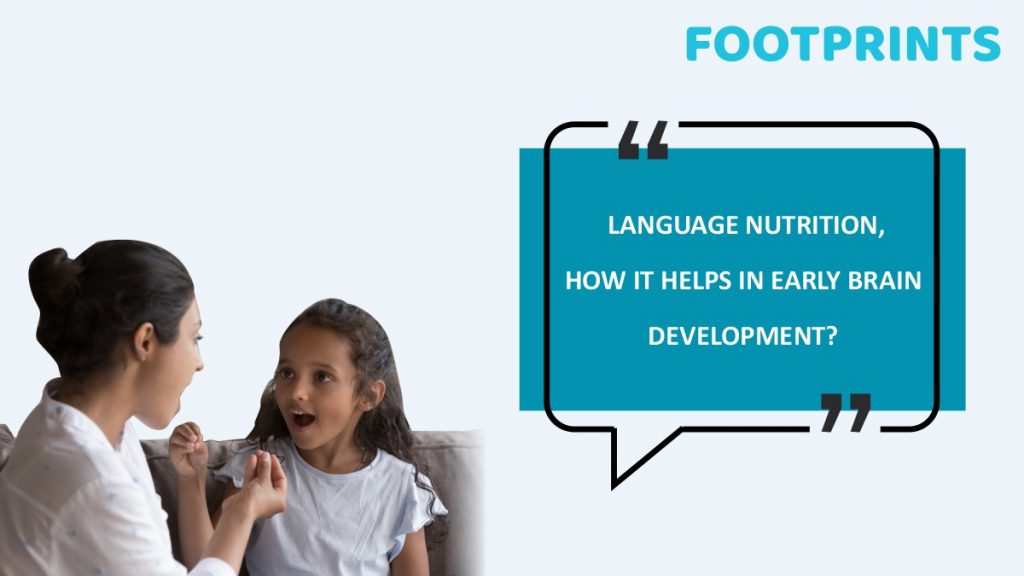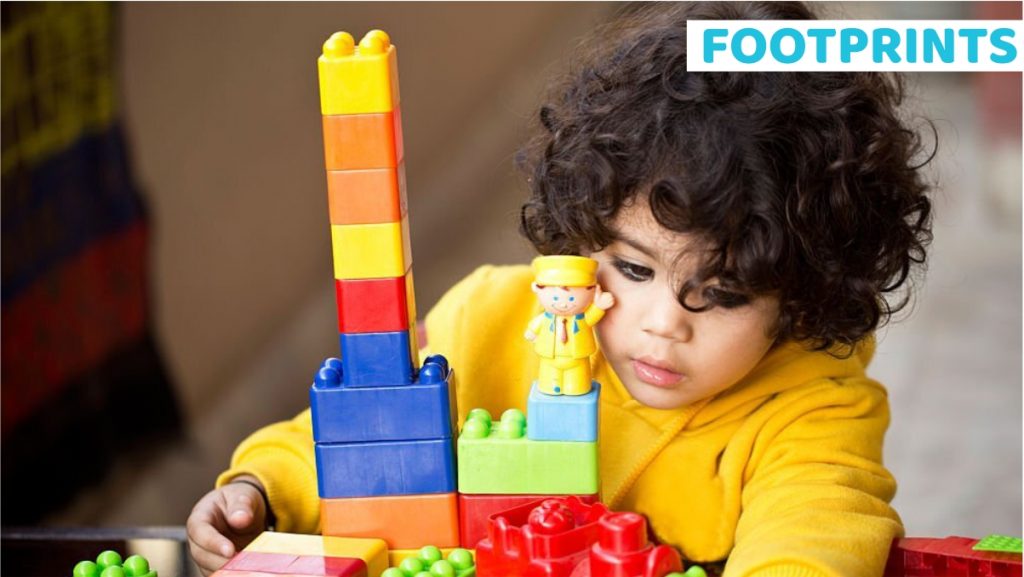

It is a proven fact that a child’s brain develops rapidly in early childhood. So much so that 90% of the child’s brain is already developed by the time he or she is 5. While genes have a role to play, the experiences that the child has in the early years go a long way in impacting the development of the brain. In fact, it is these early experiences that lay either a robust or fragile foundation for all the learning that follows. Is there a way therefore to help the child develop this sturdy foundation? The answer to that is a certain Yes that is Language Nutrition. Before we get to that, though, it will be worthwhile to understand what really happens in the brain up until the age of 5.
What happens to the brain from birth to age 5?
At birth, a baby’s brain is known to have approximately 86 billion neurons. This is almost the same number of neurons that an adult brain has. Why then is the brain said to develop till age 5?
The answer lies in the fact that an infant’s neurons are connected by around 50 trillion neural connections, also referred to as synapses. Whereas the corresponding number for the adult brain is 500 trillion! The early childhood years are crucial to make these connections or synapses.
Early childhood is a period of rapid synapse formation. It plays a vital role in learning, memory formation, and adaptation. The synapses are also needed for a number of high-level activities such as problem-solving, communication, self-regulation & a lot more. Once a synapse is formed, it is either strengthened or weakened depending on how often it is used. Synapses that are active are strengthened and the ones that aren’t are pruned.
What a child, therefore, needs is constant stimulation for the synapses to strengthen. Let us look at what are some of the things that you can do to offer the right stimulation to the child.

Nurturing Relationships
Scientists talk about the “serve and return” interaction that shapes brain architecture. To cite an example- when an infant babbles, smiles, or cries & receives an appropriate response from the adult, neural connections are strengthened in the brain. This holds true as the child grows. Simply put when parents & other caregivers understand the child’s needs & respond sensitively, they support healthy brain growth. On the other hand, neglect, stress & trauma in early childhood have adverse long-term consequences for the child’s brain.
It is seen that children who experience more of these positive interactions in their early years, go on to be healthier & more successful in life. On the other hand, adverse childhood experiences negatively impact the child’s early brain development. Children who experience early neglect tend to have lower cognitive abilities. It also hinders their emotional development.
Early Childhood Education
While loving relationships begin at home with family, they also include childcare providers, teachers, and more. It is imperative therefore to choose a pre-nursery school with care & to be aware of their approach towards education. It is important that the pre-nursery school or nursery school as the case may be, encourages a love for learning in the child. Children need to be allowed to experiment & the message that needs to go out to them is that mistakes or failures are a normal part of learning. The idea is to expose children to a number of activities. It is this breadth of experience that helps in creating well-rounded individuals. Done right, this period also encourages a growth mindset in children, where they begin to realize that their talent & abilities can be developed by making the right efforts. With the right educators who create a safe space for learning, the child falls in love with the process of learning.
Diet
It is imperative that the child be offered a nutritious diet in the early years beginning with pregnancy for proper brain development. In fact, the right nutrition can lay the foundation for the proper cognitive, motor as well as socio-emotional skills. Nutrition also plays a key role in developing concentration & learning.
Physical Activity
As they say, a healthy mind resides in a healthy body. Studies have suggested that physical activity and exercise in early childhood play an important role in improving the cognitive function of the brain. Besides this, of course, physical activity helps develop fine & gross motor skills while also encouraging children to follow an active lifestyle.

New Experiences
It is also important for the child to be exposed to a variety of experiences to fuel their curiosity. Taking them to new places, giving them new material to explore, giving them time to practice skills, and reading to them, are all things that we can do to help them build those important brain connections. A word of caution here- offering new experiences does not mean that we should rush them from one activity to another. On the contrary, it is extremely important to offer them some quiet time to consolidate their learning. Parents often worry that children will be bored, should they have unstructured time to themselves. If anything, it is this boredom that will spark creativity in the child.
Needless to mention that the experiences offered to children need to be age-appropriate.
Avoiding Stress
It is important to remember that toxic stress can lead to considerable damage in terms of both the mind & the body. In fact, studies show that children who experience toxic stress are at risk of long-term effects that may manifest in adulthood. These could include poor coping skills, unhealthy lifestyles & even physical & mental illness.
To Sum Up
While genes offer the initial map for brain development, a large part of the wiring of the brain occurs in early childhood based on the kind of experiences the child is subject to. As parents, caregivers & educators, as long as we are aware of these developmental stages, we will be able to lay the right foundation for children.


